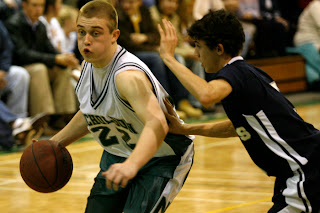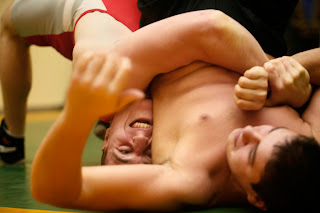
Save a few dollars on your taxes and help the environment at the same time; this is what you’ll be doing if you purchase a public transit pass.
As of July 1, 2006, the Canadian government is offering a non-refundable tax credit for those who purchase a public transit pass of a week’s duration or longer.
The government initiated this program, managed by the Canadian Revenue Agency, as an incentive for more Canadians to utilize public transit and help reduce traffic congestion and greenhouse gases, a growing concern in today’s society.
“It’s cheaper and easier for me in the long run.
I don’t have to take out money from the bank that I don’t need.
I take the bus at least 10 times a week,” said Tina Bennett, Belleville resident and long-time transit rider.
This means the average Canadian will be able to claim all transit passes purchased during the calendar year on their 2007 Income Tax return and receive a 15 per cent credit for each pass.
In Belleville, a transit pass costs $66 per month for adults, which translates into a credit of $9.90 per month.
A Loyalist student pass that costs $58 per month, converts to a credit of $8.70 per month.
Claiming this credit is simple and it is available to everyone.
A few simple requirements are all it takes to benefit.
In many cases, retaining the pass itself is enough documentation to submit for the claim.
The pass must state the riders’ name, duration of the pass, name of the transit company and the amount paid for that particular pass.
“Many more people are aware now than when it first started.
I would say there’s one in 10 that walk away without their receipt now.
In the beginning we would have to explain to people, but now they’re much more aware,” said Nicole Feeney, ticket merchant at the Belleville Transit depot.
In Belleville a receipt is required for submission, as the monthly passes do not include the cost of the pass.
If you have lost your pass/receipt, bank statements showing the purchase of the pass will suffice for tax purposes.
Despite this new break for Transit users, not all riders feel that buying a monthly pass is worth their while.
“Now I’m retired and I don’t use the bus that often, so I just buy a ticket when I need the bus.
Why would I have bus pass when I don’t even use it half the time?
I walk a lot, I don’t use the bus as much,” said Robert Bain, who has resided near downtown Belleville for the past 10 years.
Regardless, walking or riding the bus, it is still one less car on the road and that is the goal.
Increased awareness can only help to reduce traffic congestion and the production of harmful greenhouse gases in our environment.




 FIS World Cup stopped in Whistler this weekend, giving the athletes their first look at the courses that will be raced in 2010 Olympic games. Reaction from the racers has been very positive, as they like the challenging runs. Many people felt that the Torin downhill and Super-G courses were too easy for such a prestigious event as the Olympics.
FIS World Cup stopped in Whistler this weekend, giving the athletes their first look at the courses that will be raced in 2010 Olympic games. Reaction from the racers has been very positive, as they like the challenging runs. Many people felt that the Torin downhill and Super-G courses were too easy for such a prestigious event as the Olympics.


 Just a few nice features from around Whistler village.
Just a few nice features from around Whistler village.










































